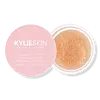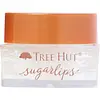What's inside
What's inside
 Key Ingredients
Key Ingredients

No key ingredients
 Benefits
Benefits

 Concerns
Concerns

 Ingredients Side-by-side
Ingredients Side-by-side

Sucrose
HumectantSimmondsia Chinensis Seed Oil
EmollientIsononyl Isononanoate
EmollientEthylene/Propylene/Styrene Copolymer
Hydrogenated Castor Oil
EmollientNylon-12
Limnanthes Alba Seed Oil
Skin ConditioningMolasses
Skin ConditioningVitis Vinifera Seed Oil
EmollientTocopheryl Acetate
AntioxidantButyrospermum Parkii Butter Extract
Skin ConditioningButylene/Ethylene/Styrene Copolymer
Phenoxyethanol
PreservativeBenzyl Alcohol
PerfumingAroma
Sucrose, Simmondsia Chinensis Seed Oil, Isononyl Isononanoate, Ethylene/Propylene/Styrene Copolymer, Hydrogenated Castor Oil, Nylon-12, Limnanthes Alba Seed Oil, Molasses, Vitis Vinifera Seed Oil, Tocopheryl Acetate, Butyrospermum Parkii Butter Extract, Butylene/Ethylene/Styrene Copolymer, Phenoxyethanol, Benzyl Alcohol, Aroma
Ingredients Explained
These ingredients are found in both products.
Ingredients higher up in an ingredient list are typically present in a larger amount.
This oil comes from the seeds of the desert shrub called Jojoba. It is more commonly known as jojoba oil, a non-comedogenic oil.
Jojoba oil does not contain fragrance and has many fatty-acids, making it a great soothing ingredient.
It also contains Vitamin E, a great moisturizing ingredient. Vitamin E is also an antioxidant and protects your skin against oxidative damage.
This ingredient humectant properties, meaning it helps draw moisture from the air. This helps keep your skin hydrated.
While jojoba has antibacterial properties, it is only able to kill some strains of bacteria.
Studies also show it helps in wound healing. In fact, Indigenous cultures have used jojoba as a moisturizer and to help treat burns for centuries.
Fun fact: Jojoba oil similar to natural human skin sebum, so it has a great effect on dry skin. It is also promising with helping to regulate sebum production.
Due to its fatty acid content, Jojoba oil may not be fungal acne safe. We recommend speaking with a professional if you have any concerns.
Learn more about Simmondsia Chinensis Seed OilSucrose is a natural sugar found in fruits, vegetables, and nuts. It is the main constituent of white sugar.
In skincare, sucrose is a humectant and can be a mild exfoliant.
Sucrose is hydrophilic, meaning it attracts water. This makes it an effective humectant and helps hydrate the skin.
Studies show sugars may worsen acne-prone skin due to it disrupting the skin's natural biome. We recommend speaking with a professional if you have any concerns.
In some products such as body scrubs, sucrose is used as an gentle exfoliant.
The term 'sucrose' comes from the french word for sugar, 'sucre'.
Learn more about Sucrose